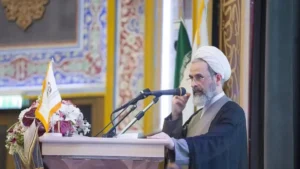The National Commission for Women (NCW) launched the fourth phase of the Digital Shakti Campaign, a pan-India project on digitally empowering and skilling women and girls in cyberspace.
Bank Maha Pack includes Live Batches, Test Series, Video Lectures & eBooks
More About The Campaign:
- Digital Shakti started in June 2018 to help women across the nation to raise the awareness level on the digital front, to build resilience, and fight cyber-crime in the most effective ways.
- The Digital Shakti 4.0 is focused on making women digitally skilled and aware to stand-up against any illegal/inappropriate activity online.
- NCW launched the campaign in collaboration with CyberPeace Foundation and Meta.
- Through this project, over 3 Lakh women across India have been made aware of cyber safety tips and tricks.
- It is helping women in reporting & redressal mechanisms, data privacy and usage of technology for their benefits.
What Has Been Said:
In line with its commitment to creating safe spaces for women and girls online, Digital Shakti 4.0 is focused on making women digitally skilled and aware of standing up against any illegal/inappropriate activity online. NCW launched it in collaboration with CyberPeace Foundation and Meta, said by the Ministry of Women and Child Development.
While addressin, Rekha Sharma, Chairperson, NCW mentioned the Commission’s continuous efforts to empower women in every sphere across the nation, added the press release.
About The Previous session:
The third phase of the program was started in March 2021 with the launch at Leh by NCW Chairperson in the presence of Lieutenant Governor Radha Krishna Mathur and Jamyang Tsering Namgyal, MP, Ladakh. In the third phase, a Resource Center was also developed under the project to provide information on all the avenues of reporting in case a woman faces any cybercrime.
About NCW:
The National Commission for Women was established on January 31, 1992, under the National Commission for Women Act, 1990, to review the Constitutional and legal safeguards for women, recommend remedial legislative measures, facilitate grievance redress, and advise the government on all policy matters affecting women.




 India Enter Semifinal After 5-Wicket Win...
India Enter Semifinal After 5-Wicket Win...
 Iran Names Ayatollah Alireza Arafi as Te...
Iran Names Ayatollah Alireza Arafi as Te...
 Iran’s Supreme Leader Ayatollah Ali Kham...
Iran’s Supreme Leader Ayatollah Ali Kham...








